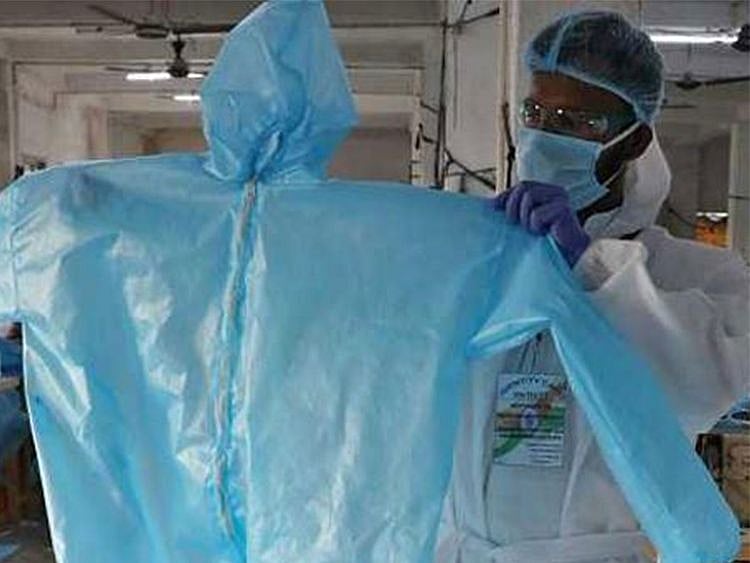VAT on PPE kits, masks could do with more clarity
Since they are sold at retail stores and pharmacies, they still get taxed at 5%

Also In This Package
Many countries during the peak phase of the pandemic announced VAT exemption or a partial reduction of the VAT rate on medical products such as PPE kits, face masks, hand sanitizer, gloves, etc. The UAE is the latest to adopt the decision to apply zero per cent VAT on these products to support frontline healthcare workers and the public.
Under the UAE’s VAT Law, the supply of medicines and medical equipment registered with the Ministry of Health and Prevention attract zero per cent. Interestingly, the question then arises whether a specific cabinet decision to apply zero per cent on PPE kits, masks and sanitizers is required? Did these products not fall under the category of medical equipment and, consequently, always subject to zero per cent?
Also Read
Indians share stories of loved ones they lost to COVID-19 pandemicIn pictures: Dubai Airports turns 60Photos: Thailand's annual buffalo festival races on, despite travel banUS President Donald Trump joins growing list of virus-infected world leadersOr is the Cabinet Decision issued merely to clarify to businesses to levy zero per cent instead of 5 per cent? The answer remains open; however, it poses a larger issue on classification and applicable VAT rate on healthcare products that may be registered with MOHAP but may not necessarily qualify as medicine or medical equipment.
More retail focussed
In January, the UAE Government enacted the new Federal Law No. (8) of 2019 on Medical Products, Profession of Pharmacy and Pharmaceutical Institutions, replacing the archaic Pharmaceutical Law issued in 1983. As per the new law, medical products have been categorized into (a) medicine, (b) medical devices, and (c) healthcare products. The new category, healthcare products, has been added to cover products used to protect general health.
However, it is not intended for the diagnosis, treatment, healing, or prevention of a disease and it does not require a medical prescription. These are generally known as over-the-counter products, available in pharmacies as well as in retail stores.
The new law classifies medical products into three categories, while on the other hand, the UAE VAT Law covers only two, i.e. medicines and medical equipment, which are intended to be used solely for diagnosis, treatment, healing, or prevention of a disease, to qualify for zero per cent VAT.
Clear classification
Even before the new law was enacted, the products were registered with MOHAP under the category (a) General Sale List (GSL) to cover simple pharmaceutical products with limited medicinal usage, which cannot be considered medicines. The products covered under GSL would typically include dietary supplements, medicated cosmetics, antiseptics, and disinfectants, which may contain pharmaceutical substances but not classify as medicine.
The industry practice since the inception of VAT in the UAE has been to apply zero per cent VAT rate on medical and healthcare products based on the evidence of MOHAP certificate. Similarly, many retailers applied the rate of tax on over-the-counter (OTC) healthcare products following the tax position adopted by the pharmaceutical industry.
In the VAT seminars conducted in 2017, the FTA (Federal Tax Authority) had clearly clarified that businesses should fulfil the two-tier test - i.e., (a) the goods must be registered with MOHAP or imported with its permission and (b) should meet the definition of medications or medical equipment in order to qualify for zero-rating on any healthcare product.
The above position taken by FTA casts the entire responsibility at each stage of the sale, and the VAT-registered buyer cannot rely on the tax position adopted on the previous sale. Dealers of OTC products are generally not technically qualified to analyze the eligibility of the product for zero-rating. And being liable for the adoption of correct tax rates, they would be at a disadvantage at the time of a future audit by FTA.
The enactment of the new Pharmaceutical Lawr einforces the need for businesses to reassess product classification in the three categories, revisit the tax position adopted, and maintain adequate documentation. In cases of ambiguity, it is always advisable to opt for a private clarification as an incorrect tax position will not only result in non-recoverability of 5 per cent VAT from customers, but potentially have substantial administrative penal consequences.
- Nimish Goel, Partner, and Geet Shah, Principal, are with WTS Dhruva.
Sign up for the Daily Briefing
Get the latest news and updates straight to your inbox
Network Links
GN StoreDownload our app
© Al Nisr Publishing LLC 2026. All rights reserved.